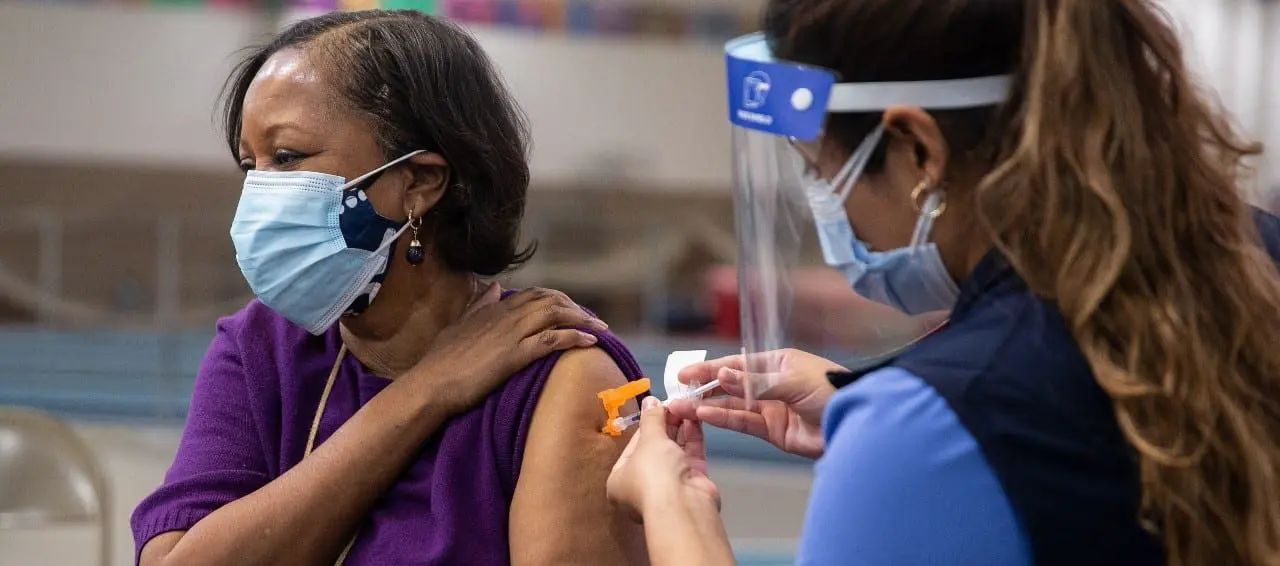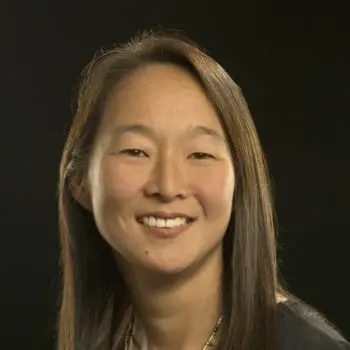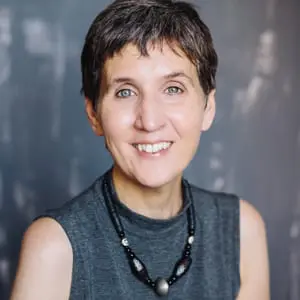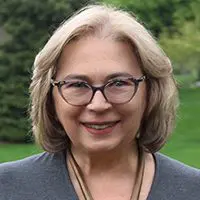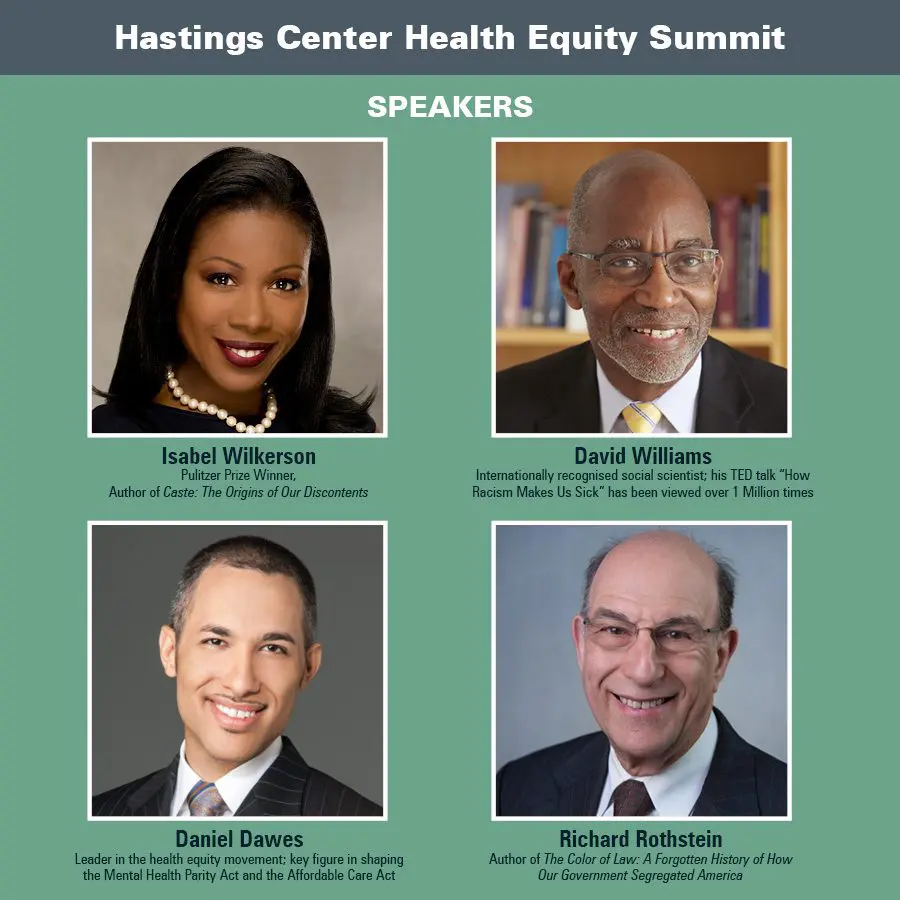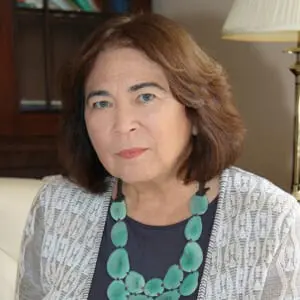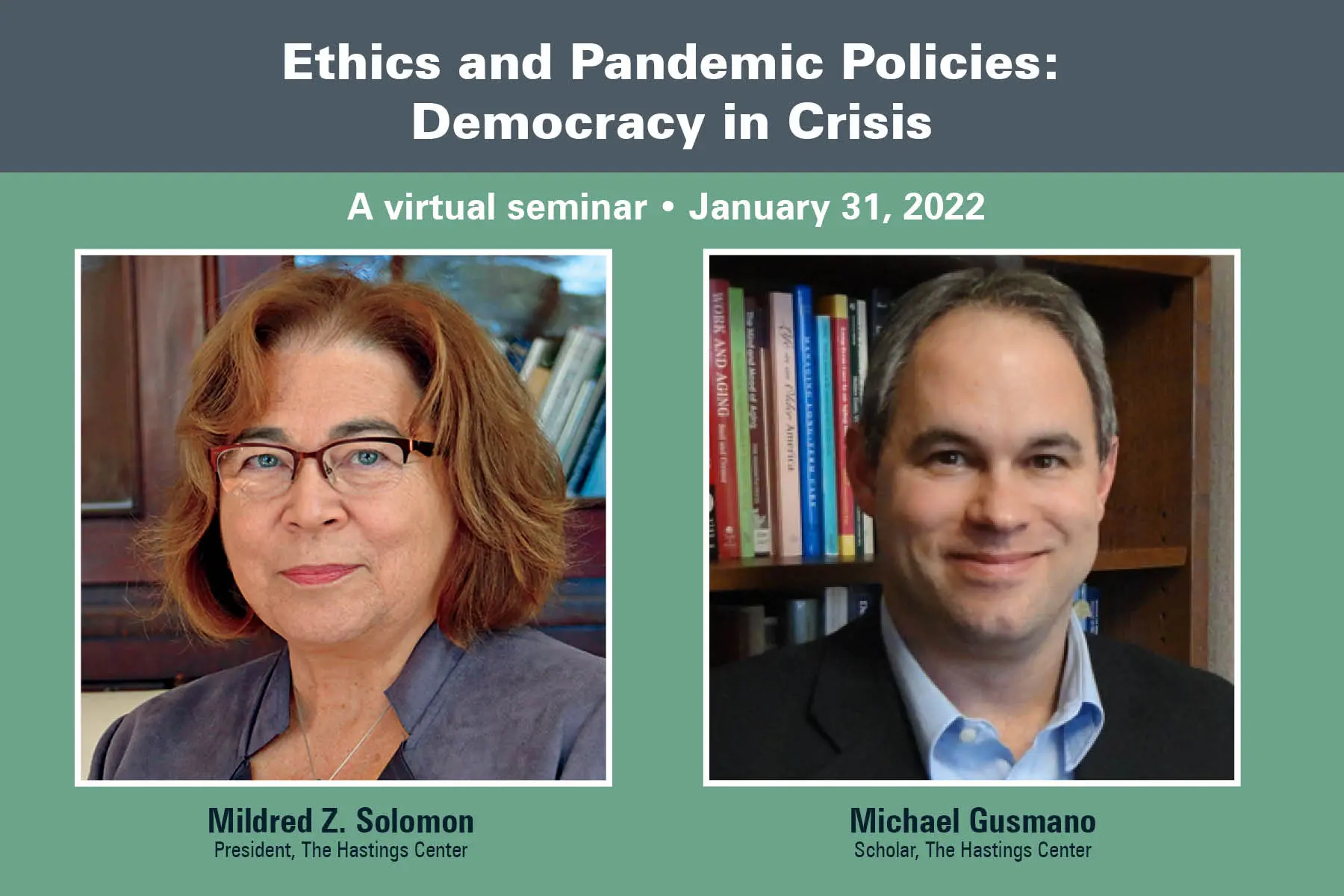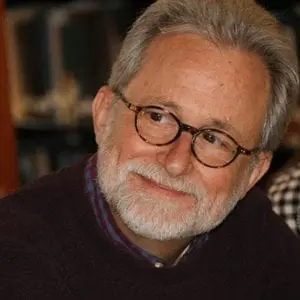Sequencing Newborns: A Call for Nuanced Use of Genomic Technologies
Josephine Johnston, LLB, MBHL, Director of Research and Research Scholar, The Hastings Center Affordable genome sequencing has led some to suggest that all newborns be sequenced at birth, setting the stage for a lifetime of medical care and self‐directed preventive actions tailored to each child’s genome. As part of the NSIGHT studies, funded by NIH, this...
End of Life Care in France and the US with Hastings Center Scholar Michael Gusmano
Life & Death Seminar Rutgers Center for Historical Analysis 15 Seminary Place, Room 6051, New Brunswick, NJ, United StatesEnd of Life Care in France and the US with Hastings Center Scholar Michael Gusmano, Life & Death Seminar Rutgers Center for Historical Analysis, January 21st at Rutgers University
Ethics of Workarounds in Health Care with Hastings Center Scholar Nancy Berlinger
Robert H Lurie Medical Research Center 303 E. Superior, Chicago, IL, United StatesThe Montgomery Lectures series addresses diverse topics within bioethics and the medical humanities. Presenters are faculty, affiliates, and alumni of the Medical Humanities & Bioethics Graduate Program--along with a few special guests. The lectures run every Thursday from noon to 12:45pm during The Graduate School's fall, winter, and spring quarters. They are open to students,...
Vaccine Access, Vaccine Hesitancy: Challenges to Herd Immunity
OnlineIf the United States is to achieve herd immunity, at least 75-85% of the population will need to be vaccinated, yet there are many different kinds of barriers to overcome. Some Americans are reluctant or wish to wait, because they distrust government or the safety of the vaccines or believe in widespread conspiracy theories. Views...
Bioethics of Migration/Creating Systems of Safety for Undocumented and Low-Wage Immigrants as a Vulnerable Population
OnlineWith Hastings Center scholar Nancy Berlinger. Ethics Grand Rounds, Alden March Bioethics Institute, Albany Medical College
Planning for Seniors Housing in Changing Cities: A Cross National Exchange
OnlineMay 11-12, 2021, 12–4:00 pm EST Sessions This virtual conference features presentations and discussions on priority topics related to seniors housing, such as housing preservation, eviction prevention, and access to support services. Hastings Center research scholar Nancy Berlinger will be presenting.
Stiftung Charité presents Charité BIH Entrepreneurship Summit 2021
Onlinewith an interview by Hastings Center President Mildred Solomon of Hastings Center Fellow Arthur Caplan
Questioning Cure: Disability, Identity, and Healing
OnlineShould cure be the ultimate aim of health care? Sometimes aiming at cure entails trying to fix disability rather than enabling disabled people to flourish. Sometimes it obscures the goal of healing. And sometimes aiming at cure entails failing to distinguish between disease and difference. In this webinar, disabled writers and educators Anand Prahlad, Ann...
The Importance of Bioethics for Our Contemporary and Near Future World
OnlineHastings Center scholar Nancy Berlinger will present with a panel at NYU's inaugural Annual Undergraduate Philosophy Conference at NYU.
Binocularity: A Conceptual Tool for Comprehending and Respecting Persons
OnlineSenior research scholar Erik Parens will be presenting as part of The Montreal Health Ethics Conference Series 2021: Wellness, health and human flourishing.
Do Genetic Findings Impact Perceptions of Responsibility?
OnlineThis symposium is sponsored by the Center for Research on Ethical, Legal & Social Implications of Psychiatric, Neurologic & Behavioral Genetics at Columbia University Irving Medical Center, funded by the National Human Genome Research Institute, in collaboration with The Hastings Center.
Building Effective Stakeholder and Public Engagement Strategies for Vector Control Projects
OnlineHastings Center scholar Carolyn Neuhaus will present at the ANTI-VeC webinar series.
Vaccine Mandates and Passports: Are They Legal and Ethical?
OnlineJoin Mildred Solomon, the president of The Hastings Center, to discuss these issues with four experts on ethics and law from across the political spectrum.
At the Crossroads of Ethics, Law, Medicine and Anthropology
OnlineThis forum will explore our obligations to non-citizens at the U.S. southern border through ethical, legal, medical, and anthropological lenses. Moderated by Hastings Center scholar Nancy Berlinger.
Medical Interfaces with Emotion AI: Shaping Public Narratives and Perceptions of Nonverbal Patients with Degenerative Diseases
OnlineHastings Center PMRA Isabel Bolo is presenting, "Medical Interfaces with Emotion AI: Shaping Public Narratives and Perceptions of Nonverbal Patients with Degenerative Diseases" at the CEPE/IACAP Joint Conference 2021: The Philosophy and Ethics of Artificial Intelligence
Breakthrough or Breakdown: Should the FDA Have Approved the New Alzheimer’s Drug?
OnlineHastings Center President Mildred Z. Solomon will be hosting our next Hastings Conversations webinar as she will get to the bottom of the FDA’s decision and its consequences for patients and families, the health care system, and the integrity of regulatory oversight.
Do Justice and Equity Concerns Bolster or Hinder the Case for the Use of Gene Drive Applications?
OnlineHastings Center scholar Carolyn Neuhaus is on one panel “Do Justice and Equity Concerns Bolster or Hinder the Case for the Use of Gene Drive Applications?” in a series of five panel deliberations entitled “Unsettled Ethical Issues in Gene Drive Research” through the Forum, a collaboration between The Foundation for the NIH (FNIH) GeneConvene Global Collaborative and...
Achieving COVID-19 Vaccine Equity
OnlineHastings Center PMRA Danielle Pacia will be participating in Stanford’s INFODEMIC conference on Social Media and Covid-19 Misinformation. Moderated by: William Haseltine, Discussants: Danielle Pacia, Lisa Menning, and Tom Bollyky.
The Ethical Imperatives for Social Media Companies and Influencers to Act
OnlineHastings Center research scholar Nancy Berlinger will be participating in Stanford’s INFODEMIC conference on Social Media and Covid-19 Misinformation. With discussants: Dr. Travis Rieder, Dr. Nancy Berlinger, and Dr. Arthur Caplan.
“Binocular Vision: A Tool for Thinking about Enhancement”
OnlineHastings Center scholar Erik Parens will be giving a talk entitled “Binocular Vision: A Tool for Thinking about Enhancement” at Erasmus School of Philosophy in Rotterdam.
“Distributive Justice and Social Justice in Pandemic Response”
OnlineHastings Center scholar Nancy Berlinger will discuss “Distributive Justice and Social Justice in Pandemic Response” at Fordham University, Dept. of Philosophy.
Short Course on Public Deliberation and Gene Editing in the Wild
OnlineHastings Center scholars Michael Gusmano and Karen Maschke present a Short Course on Public Deliberation and Gene Editing in the Wild for attendees of Annual Meeting of the American Political Science Association via zoom. Emerging technologies for the genetic modification of organisms present unprecedented opportunities to alter wild populations of organisms, from microbes to...
“Creating Health Care Systems of Safety for Immigrants and Refugees”
OnlineHastings Center scholar Nancy Berlinger will present "Creating Health Care Systems of Safety for Immigrants and Refugees" at the Division of Medical Ethics series at Weill Cornell.
“The Bioethics of Migration”
OnlineHastings Center scholar Nancy Berlinger will discuss “The Bioethics of Migration” at the Weill Cornell MedicineSeminar Lecture Series.
Society for the Social Studies of Science annual conference
OnlineHastings Center PMRA Ben Wills will be participating in two panels for the Society for the Social Studies of Science annual conference.
“BINOCULARITY: A Tool for Comprehending Persons in Depth”
OnlineHastings Center senior research scholar Erik Parens will present “BINOCULARITY: A Tool for Comprehending Persons in Depth” at the John Dossetor Health Ethics Centre at the University of Alberta. It is plain that, to exhibit care for persons, we need to respect them as persons. I will suggest that, to show respect, we should aspire...
“Vulnerabilities of Immigrant Patients”
OnlineHastings Center scholar Nancy Berlinger will discuss “Vulnerabilities of Immigrant Patients” at the University of Arkansas for Medical Sciences.
“Doing Bioethics and Humanities in Public: Learnings from Hastings Center Initiatives”
OnlineHastings Center scholars Nancy Berlinger, Erik Parens, and Rice Family Fellow Liz Bowen, present at ASBH preconference session 003.
“Genomics, Human Behavior, and Social Outcomes”
OnlineThe Hastings Center, in partnership with the Center for ELSI Resources & Analysis (CERA), will present an online discussion for journalists, “Genomics, Human Behavior, and Social Outcomes.”
The 2021 David Roscoe Award for an Early-Career Scholar’s Essay on Science, Ethics, and Society will be presented to the winner at ASBH.
OnlineThe 2021 David Roscoe Award for an Early-Career Scholar’s Essay on Science, Ethics, and Society will be presented to the winner at ASBH.
The 2021 Bioethics Founders’ Award will be presented to the winner at ASBH
OnlineThe 2021 Bioethics Founders’ Award will be presented to the winner at ASBH.
“Genetically-informed Education: The Problem or the Cure to Essentialism, Racism, and Ableism?”
OnlineHastings Center presidential scholar Lucas Matthews will present at the ASBH conference: “Genetically-informed Education: The Problem or the Cure to Essentialism, Racism, and Ableism?”
“A Critical Moment in Bioethics: Reckoning with Anti-Blackness through Intergenerational Dialogue”
OnlineHastings Center advisor Faith Fletcher will present "A Critical Moment in Bioethics: Reckoning with Anti-Blackness through Intergenerational Dialogue" at this year’s ASBH conference.
“Abortion Clinics Dwindle While Deceptive ‘Crisis Pregnancy Centers’ Thrive: Epistemic Injustice Concerns and Policy Solutions.”
OnlineHastings Center PMRA Danielle Pacia will present at ASBH conference: "Abortion Clinics Dwindle While Deceptive 'Crisis Pregnancy Centers' Thrive: Epistemic Injustice Concerns and Policy Solutions."
“Meet the Editors”
OnlineHastings Center scholar and editor Greg Kaebnick will join a panel “Meet the Editors” at ASBH conference
“Toxic Treatments and Transgenic Rats: The Ecological Dimensions of Disability Art”
OnlineHastings Center Rice Family Fellow Liz Bowen will present at ASBH conference: “Toxic Treatments and Transgenic Rats: The Ecological Dimensions of Disability Art.”
“The Many Facets of Moral Distress across Healthcare Settings”
OnlineHastings Center scholar Nancy Berlinger will discuss “The Many Facets of Moral Distress across Healthcare Settings” at University of Penn Departments of Nursing and Bioethics.
“Enjoying: Disability as a Creative Force”
OnlineHastings Center scholar Erik Parens and Hastings Center Rice Family Fellow Liz Bowen present “Enjoying: Disability as a Creative Force” as part 5 of their NEH public events series “The Art of Flourishing: Conversations on Disability.”
Law Enforcement and Genetic Data
OnlineThe Hastings Center, in partnership with the Center for ELSI Resources & Analysis (CERA), will present an online discussion for journalists, “Law Enforcement and Genetic Data.”
Precision Medicine Research, “All of Us”, and Inclusion
OnlineThe Hastings Center, in partnership with the Center for ELSI Resources & Analysis (CERA), will present an online discussion for journalists, “Precision Medicine Research, ‘All of Us’, and Inclusion.
Addressing Racism in Medical Research & Publishing
OnlineRacism and unconscious bias persist in medical research. Given that journalists who write, or aspire to write, about medicine look at journals for story ideas, the editors of those journals have an indispensable role in identifying and eliminating racism in the review and publication of research. What antiracist steps are leading journals taking? What more should be done? What kinds of cues can help journalists recognize racial bias in a research article?
The Role of Choice in Death and Dying in Late Life
OnlineIn this symposium, we will discuss the changing attitude towards death and dying in late life, bringing together insights from different disciplines, such as sociology, philosophy, (bio)ethics and thanatology. The question will be raised: what is the impact of the growing emphasis on individual choice regarding death and dying on the way we – as individuals and as a society – live towards the end of life?
Pandemic Ethics: Bioethics, Justice and the Common Good
OnlineHastings Center president Mildred Z. Solomon is presenting, “Pandemic Ethics: Bioethics, Justice and the Common Good” at the Grand Rounds at The Mayo Clinic, Rochester, MN.
Righting the Wrongs: Tackling Health Inequities
OnlineThe Hastings Center and the Association of American Medical Colleges, with the American Medical Association and the American Nurses Association, host a health equity summit featuring author Isabel Wilkerson.
Civics Education as a National Security Priority
OnlineHastings Center president, Mildred Z. Solomon will join the Commonwealth Club of California to present an online discussion,"Civics Education and Its Role in Boosting National Resilience at This Critical Time in American History." The program is part of the Commonwealth Club's Creating Citizens initiative.
Democracy in Crisis
OnlineHastings Center president, Mildred Z. Solomon and research scholar, Michael Gusmano will present, "Democracy in Crisis", at The Global Health Network Epidemic Ethics seminar.
Comprehending Persons in the Context of Rehabilitative Medicine
OnlineHastings Center scholar Erik Parens is presenting, "Comprehending Persons in the Context of Rehabilitative Medicine” at the Division of Medical Ethics 2021-2022 Seminar Lecture Series at Weill Cornell. Meeting ID: 950 0173 2724
